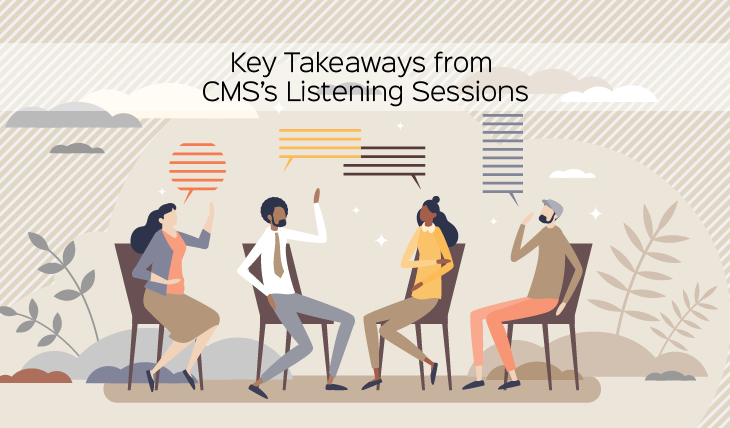Recently, the Centers for Medicare & Medicaid Services (CMS) met to hold a few “listening sessions” in hopes of gathering key information on what steps various kinds of medical transportation management professionals can take to improve their services.
We found that each point had a lot of potential for growth for our industry:
1: Even though strides have been made, NEMT brokers and other professionals need to take further measures to protect against fraud, waste, and abuse of the system to be sure that anyone who needs NEMT can get it.
Looking for ways to increase security protocols is one direction to go in this situation, but the question is: “how do you know what to look out for?” Thankfully, the answer lies in the spirit of what CMS did with their listening sessions: providing a robust means for feedback. This is done best with a two-fold approach.
The first way to tackle it is to ensure that your medical transportation management business has a user-friendly and accessible means of providing feedback, both anonymously and not. Ideally, you might have multiple means of doing so, one analog and one digital. The idea behind this is to have a way of passively gathering feedback that anyone can use.
The second way to address this need is to actively seek feedback through community outreach. One of the best ways to know how to protect and serve your community better is to simply gather local leaders and ask.
2: Non-emergency medical transportation needs to further leverage technology through low-cost programs that let you track drivers and provide real-time GPS data to help address issues in rider experiences and program experiences.
This one is a little simpler than the previous one, depending on the needs of a provider’s members, they may just need to get some new or improved NEMT software. However, that may not always be the case. Sometimes no one program fits perfectly for what’s needed.
In this case, it might be helpful for you to work directly with your NEMT software provider, if possible, to see how they can help you tailor their software to your needs.
3: Because access to transportation is a social determinant of health, and the Medicaid NEMT benefit is crucial in connecting people to the care they need, NEMT brokers and other service providers should expand their services to non-medical sites.
The action here is clear, so the question is more about how to go about taking that action. The best place to start is to determine what a community needs outside of medical transportation. Because while you want to meet your members’ needs as best you can, it’s not helpful to you or them to just offer what you think will help.
Every community’s needs will be different, so as is the case in these socially-determined aspects of care, the best way to find out what a particular community needs is simply to ask. Though with this, we might suggest more of a concentrated means of feedback like a survey that your members can send to your team.
4: There’s a need for a national standard for driver eligibility and vehicle inspections so medical transportation management teams can be held accountable for safety without increasing their administrative burden.
This effort is thankfully already well underway thanks to NEMTAC, which does currently offer accreditation programs and has set standards for the industry. The more support they get, and the more widely adopted they are, the closer we can get to addressing the need of this last point.
CMS’s Data Should Steer You Well
Sometimes you have to get down to the nitty-gritty with data, and sometimes it’s plain as day. Thankfully with CMS’s listening sessions, the takeaways are clear: through community outreach and continuing with industry-wide efforts to provide better and better value-based care, we can address current concerns.
This isn’t to say that we should just stay the course. Ensuring we don’t just get comfortable with the status quo is essential to continuing to advance our industry. That’s why we advocate for community outreach so vehemently for NEMT brokers, PACE Programs, MCOs, and all manner of other NEMT professionals.
